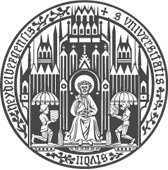
Semantic NLP – from a discourse perspective
Kursbeschreibung
| Studiengang | Modulkürzel | Leistungs- bewertung |
|---|---|---|
| BA-2010 | AS-CL | 8LP |
| NBA | AS-CL | 8LP |
| Master | SS-CL, SS-TAC | 8LP |
| Magister | - | - |
| Dozenten/-innen | Anette Frank |
| Veranstaltungsart | Hauptseminar |
| Erster Termin | 17.10.2011 |
| Zeit und Ort | Mo, 16:15–17:45, INF 327 / SR 4 |
Teilnahmevoraussetzungen
- Formale Semantik
- Statistik
Leistungsnachweis
- Regelmäßige Teilnahme
- Referat
- Hausarbeit
- Erwerb von "Activity Points"
Note: The seminar is planned to be continued as a ''Forschungsseminar'' (MA-Forschungsmodul) in summer term 2012 and serves as a preparation course for participation.
Inhalt
Semantic NLP has achieved considerable success in core areas such as word sense disambiguation, semantic parsing, or coreference resolution. But current methods suffer from principled shortcomings:
-
Semantic NLP is mainly restricted to the sentence level, and does not sufficiently
exploit discourse-level information. Thus, semantic processing modules neglect
significant parts of semantic information encoded in texts through inter-sentential
meaning and inference relations.
- Today's semantic NLP components focus mainly on overt linguistic information, again neglecting significant parts of semantic information encoded in texts in terms of inference relations.
- Semantic NLP systems are typically realized in pipeline architectures. Such systems fail to represent and exploit dependencies between semantic analysis levels, and thus propagate errors from one module to the next.
Current research investigates learning techniques that capture dependencies between individual NLP component models through 'joint inference'. These models explicitly represent dependencies between linguistic analysis levels, such as the joint contribution of semantic entity type information with decisions of a coreference classification system. By explicitly modeling such dependencies, they try to overcome the restricted performance of individual semantic processing models in classical pipeline architectures.
The seminar investigates perspectives of joint inference for discourse-oriented
semantic NLP by interfacing
local
and
global
semantic processing models:
word sense disambiguation (WSD), named entity classification (NEC) and semantic
role labeling (SRL) as prima facie
local
semantic phenomena, and their interaction with coreference resolution as a
global
discourse-level semantic resolution process.
For each of these semantic NLP models, we will analyze state-of-the-art methods, weaknesses of traditional models and perspectives of joint inference from a discourse perspective. We will discuss special discourse coherence models, such as entity-grids, discourse-level applications such as Textual Inference, and annotation models suited for joint inference tasks (e.g. OntoNotes).
In the introductory part, the seminar offers a survey of classical corpus-based
semantic analysis methods in the areas of WSD, NEC, SRL and Coreference Resolution.
For each of these, we contrast different learning frameworks (supervised, semi-supervised,
unsupervised) and special learning algorithms (e.g. graph-based clustering), as
well as special (heuristic) data acquisition techniques and evaluation methods.
The later part will focus on modeling interaction phenomena using joint inference
techniques.


